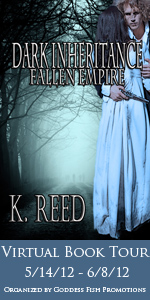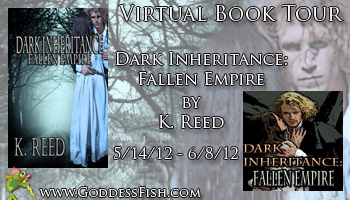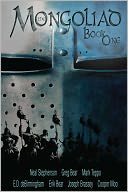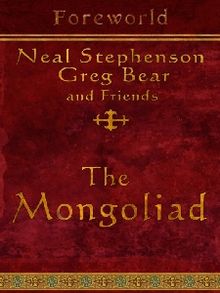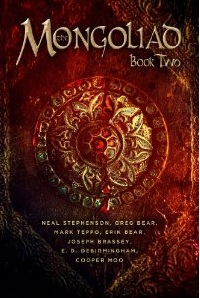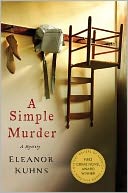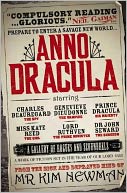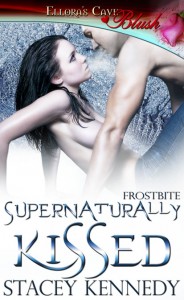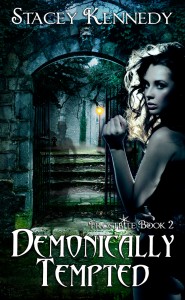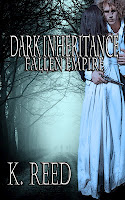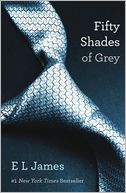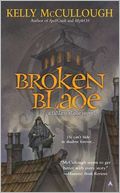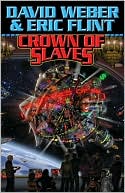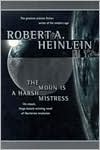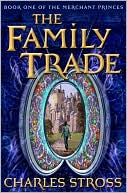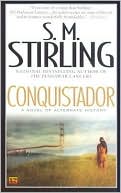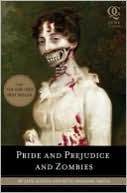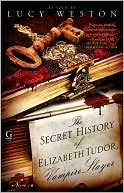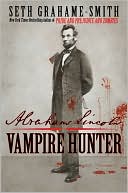 Format read: signed paperback purchased from the author at Dragon*Con
Format read: signed paperback purchased from the author at Dragon*ConFormats available: Mass Market paperback, ebook
Genre: Paranormal romance, steampunk
Series: Blud #1
Length: 395 pages
Publisher: Pocket Books
Purchasing Info: Author Website, Publisher Website, Goodreads, Amazon, B&N, Book Depository
Have you ever heard of a Bludman? They’re rather like you and me—only more fabulous, immortal, and mostly indestructible. (They’re also very good kissers.) Delilah S. Dawson’s darkly tempting debut drops her unsuspecting heroine into a strange faraway land for a romantic adventure that’s part paranormal, part steampunk . . . and completely irresistible.
When Tish Everett forces open the ruby locket she finds at an estate sale, she has no idea that a deliciously rakish Bludman has cast a spell just for her. She wakes up in a surreal world, where Criminy Stain, the dashing proprietor of a magical traveling circus, curiously awaits. At Criminy’s electric touch, Tish glimpses a tantalizing future, but she also foresees her ultimate doom. Before she can decide whether to risk her fate with the charming daredevil, the locket disappears, and with it, her only chance to return home. Tish and Criminy battle roaring sea monsters and thundering bludmares, vengeful ghosts and crooked Coppers in a treacherous race to recover the necklace from the evil Blud-hating Magistrate. But if they succeed, will Tish forsake her fanged suitor and return to her normal life, or will she take a chance on an unpredictable but dangerous destiny with the Bludman she’s coming to love?
Run away and join the circus–it’s almost a cliché for living a life of adventure. But what if that adventure were in another world, a world parallel to our own? That’s the choice facing Tish Everett in Delilah S. Dawson’s Wicked As They Come. But it’s not the only choice Tish faces. It’s not even the hardest choice.
Tish has escaped from a controlling relationship with not much more than the shirt on her back and the tattered remnants of her self-respect. But she also has a career as a nurse that she has put back together, a terminally-ill grandmother who is helping her get back on her feet, and a desire above all else to never, ever lop off bits of herself to fit into someone else’s dreams or desires.
Then she accidentally walks out of an estate sale with a Victorian locket hidden around her neck–and wakes up naked in the world of Sang, the world of the Blud.
She thinks it’s all a dream. Until one of the rabbits bites her ankle. This is no fluffy child’s tale, no cute Bunnicula. It sucks her blood. And it has lots of friends. After all, it’s still a rabbit.
The man watching her is a predator. He wants her to come with him, to trust him. His picture was in that locket. She thought he resembled a decadent Mr. Darcy. He still does, but so much more. This Mr. Darcy has fangs, like the bludbunny he just killed for her.
Criminy Stain claims to have made the locket for her. That he called her. But Tish is too damaged to be let herself be “claimed” by any man, not just now. Still, she needs protection in this place where everyone, and everything will drink her blood for a meal. Even the deer.
Tish can’t quite wrap her head around a place where even Bambi is a deadly predator.
Then she discovers that she herself is something different in Sang. She sees the future. When she touches someone, she gets a “glance” at what their future will bring…if they do not deviate from their path.
When Criminy takes her hand, she sees their future. Together. And she is not ready. Nor does she know if he wants the real her, or just a woman to fit into his own dreams, as her abusive ex did. But Tish still needs his protection.
Discovering just how much, and what she needs protecting from, is a revelation.
Sang is…just a half-step off from Tish’s reality. London is London. London is always London. But on the maps, Brussels is Bruzzles, and Russia is, well, Freesia (it is freezing, after all). And everything in Sang is either predator, or prey. Or Stranger.
Tish discovers that one of her coma patients is in Sang. Casper Sterling plays the harpsichord in Criminy Stain’s carnival, and he’s like Tish, a Stranger from the world she knows. But Tish knows he’s wasting away after a motorcycle accident. But not in Sang.
Tish is just asleep. Until Jonah Goodwill, the despotic, and creepily bigoted ruler of Sang Manchester, sends agents to steal Tish’s locket, trapping her in Sang. Tish can’t bear to be trapped. To have her choices taken away. She’s already been there and done that.
Criminy magicked that locket to bring his perfect match to Sang. He can only do everything possible to let her come to believe that. No matter what it costs him or how much it might hurt. Even if what he has to do is get her the means to walk away from him.
The magic was to find his perfect match. Not to bring him someone he could force into that role. But someone who was already that right person. Tish just doesn’t believe she could be right for anyone, even herself.
It takes Tish a long time, and a lot of pain, to realize that the carnival is all about freedom. And so is the bludman who is its master.
Escape Rating A-: Wicked As They Come was a book that had been teasing me since I first saw it. I knew I would succumb to temptation eventually, and when I finally did, the story was every bit as deliciously wicked as the cover promised.
It succeeds on multiple levels. The world Ms. Dawson creates is an amalgam of off-kilter Victoriana, outright steampunk and paranormal alternate universe magickal delight. Not only is Tish not sure this isn’t a dream, the reader occasionally isn’t either. A dream with teeth.
There’s a quest mixed into this love story, and it is both. Tish needs to find herself, and Criminy needs to prove, not that he’s worthy, but that he wants Tish for who she is, not for who he wants her to be. It’s a crucial difference that isn’t often dealt with in romance. Very nicely done.
The other theme is that every dream has a price. Criminy wants his soul mate. Tish wants to retain her freedom to choose. The price of both of those desires is high, and Tish will eventually have to make a final choice. Freedom is never free.
Speaking of freedom, the world of Sang is not free. There is a villain in the piece, Jonah Goodwill. While the picture of Sang is clearly drawn and compellingly beautiful, although it takes a while to fill in, Jonah’s motivations are a little less clear. He comes across as a charismatic bigot with a devout and murderous following. But how did he get such incredible power? Defeating him was absolutely necessary, and made for a hair-raising climax on both sides of the story, but he felt a bit like a cardboard cutout.
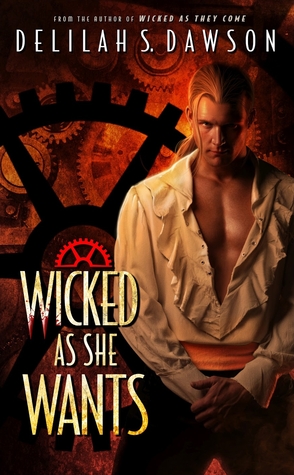 I want to go back to Sang right now. The next book, Wicked As She Wants, is much, much too far away. Good thing there’s an enovella, The Mysterious Madam Morpho, coming next month to tide me over.
I want to go back to Sang right now. The next book, Wicked As She Wants, is much, much too far away. Good thing there’s an enovella, The Mysterious Madam Morpho, coming next month to tide me over.

